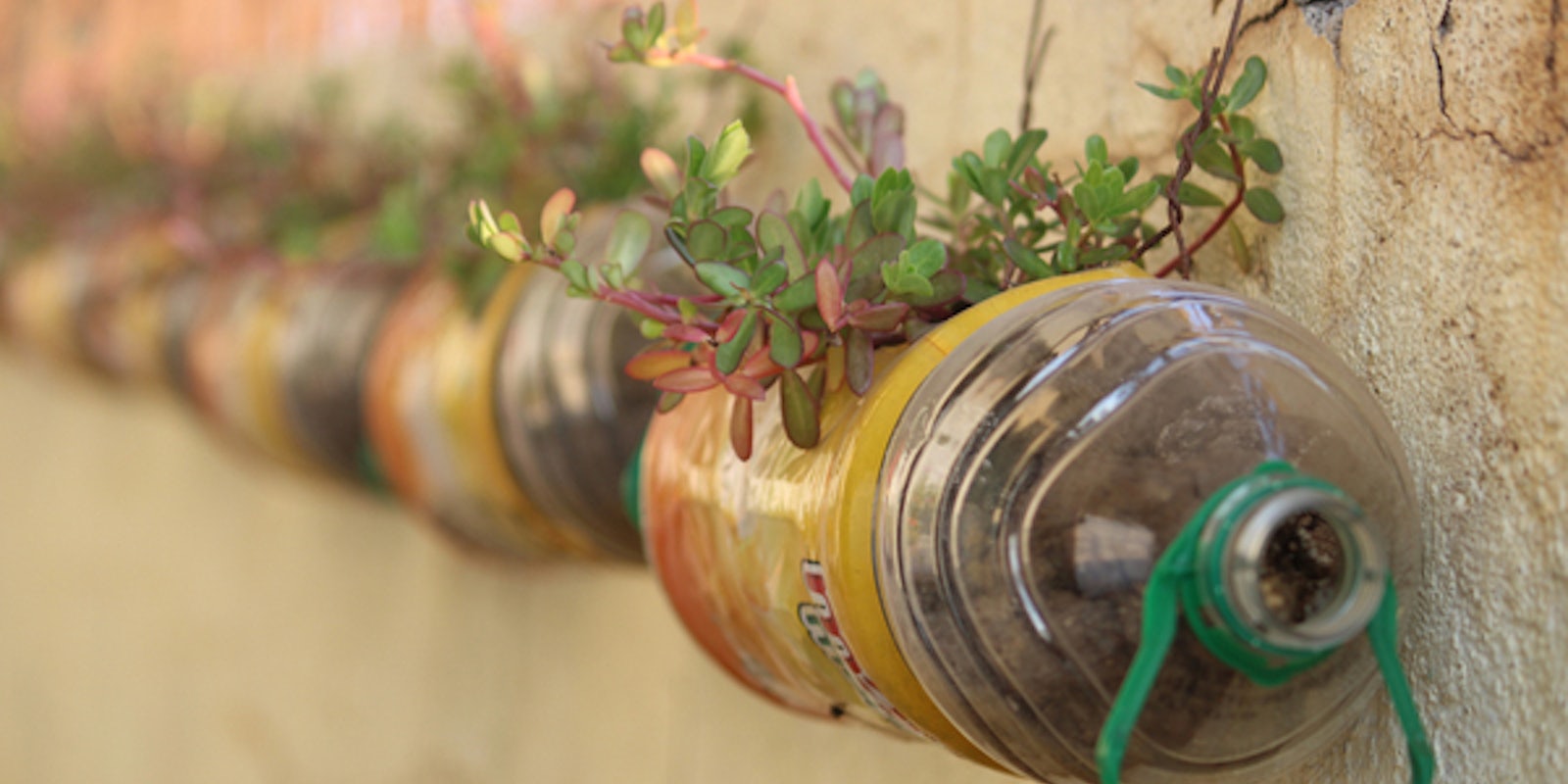Transitioning to a green lifestyle can feel like a massive undertaking. What does eco-friendly mean? What is composting and what is biodegradable? How do you tell the difference? And how effective is recycling really?
Words like ‘green’ and ‘eco-friendly’ are umbrella terms that can be slapped onto any label. No matter what the label says, it’s good to know how your products are actually affecting the environment.
Learning your way around some common green terminology can help you better buy the products that are the most beneficial for you and the planet we share.
Beginner’s guides to going green
- Eco-friendly subscription boxes for a happy environment (inside & out)
- Best composters to turn food scraps into soil
- How to have a sustainable orgasm
A quick guide to eco-friendly vocabulary
Living 100% green and squeaky-clean ain’t easy. Lack of income, access, and green legislature make it nearly impossible for the average person to live in harmony with the earth. Different people have different priorities, and it’s important to know yours.
There are a lot of different terms to describe how a product impacts the environment. Each term is designed to help answer one of two questions: how is it made and how is it thrown away?
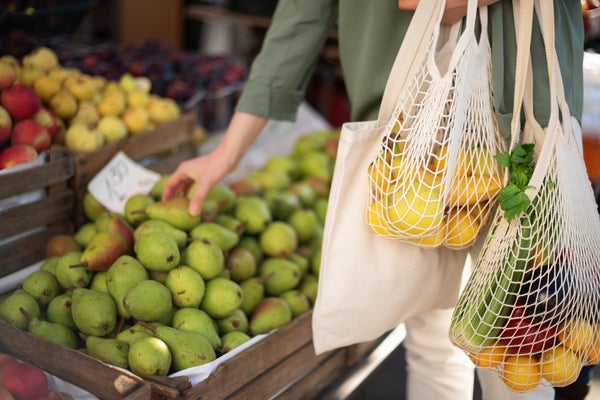
What does ‘biodegradable’ mean?
Products are considered biodegradable if you leave them in nature and they will be eaten by bacteria or other microorganisms. Biodegradable materials include:
- food
- plant clippings
- paper
- cardboard
- untreated wood
- & other naturally decaying materials.
- Yes, even you, meatbag.
The ‘but’s of biodegradables
Biodegradable plastics only degrade under certain conditions, like those at an industrial facility. And those conditions may not be a truly sustainable option. Those plastics just break down into much smaller microplastic particles.
If organic materials are surrounded by synthetic materials like plastic, they don’t break down. Instead, they start to rot, releasing methane, a dangerous greenhouse gas. This is why many cities are redesigning landfills to separate out compostables.
Our favorite biodegradable alternatives:
- Storetite Organics cotton swabs
- Mother Earth charcoal dental floss
- The Humble Co. bamboo toothbrush with replaceable heads
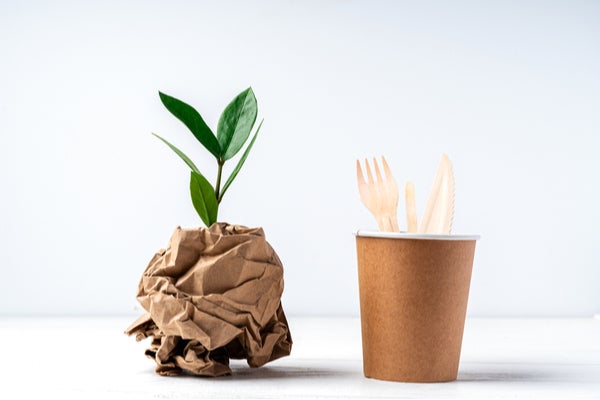
What is composting?
Similar to biodegradables, microrganisms can break down compostable materials in about 90 days. The breakdown process has zero harmful effects on the environment and helps gardeners and farmers to have happier healthier soil.
Lots of people use their own scraps to create compost for their yard. Others send their scraps to a community facility. If you live in the U.S., you can use this ‘Where to Compost’ list by Litterless to find a facility near you. Or find your neighborhood community garden that composts.
What’s the difference between biodegradable and compostable?
All compostables are biodegradable. Not all biodegradables are compostable. Those plant-based plastics we mentioned? Not compostable. Items around your home that are compostable include:
- food scraps: fruit & veggies, chopped seeds, fruit peels (easy on the citrus), non-dairy milk, coffee grounds & loose-leaf tea, beans & legumes, herbs & spices, stale breads & grains, crushed up eggshells
- paper & cardboard: toilet paper rolls, toothpicks, egg cartons, parchment paper, unbleached coffee filters
- plant & yard clippings
- …yes, you are compostable, too.
Other composting considerations:
Your local composting site may have limitations. Community gardens can’t accept oily foods, dairy products, or meats and fish. These items tend to be too smelly for compost bins in residential areas. Other items can only be composted at a commercial facility.
The EPA doesn’t monitor the labeling or disposal of biodegradable and compostable products. Some states regulate the labeling and disposal of compostable products. You can find your state and city’s regulations, along with contact information, using the U.S. Compost Council’s website.
Does a product’s label say it’s compostable? That doesn’t mean it is. For specific info on product disposal, contact your local composting facility.
The easy, compostable swaps we love:
- Dyper diapers & re-dyper services
- Responsible Products compostable zipper bags
- If You Care coffee filters
- Yesland 4pc. kitchen dish scrub set
Recyclables & Reusables
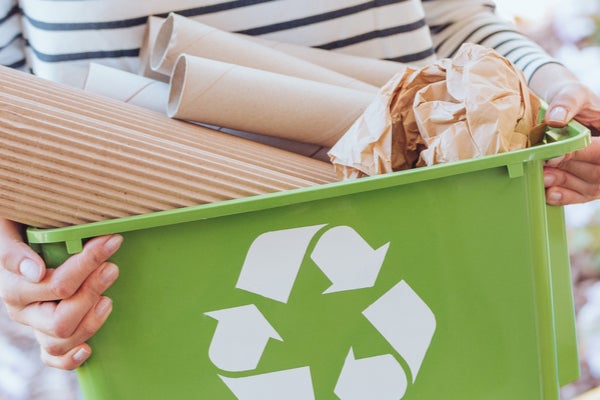
Most of us are familiar with recycling and have an opinion on whether or not it’s a worthwhile endeavor. Unfortunately, the majority of the plastics can’t be properly recycled. The good news is that you can feel confident about recycling clean:
- glass
- metals (like aluminum cans)
- aluminum foil (balled up 2” or larger)
- paper
- cardboard
- hard plastics (no plastic bags or film)
The best reusable products:
- household cleaners with chic, reusable containers from CleanCult
- reusable food storage bags
- silicone lids that stretch to cover an container
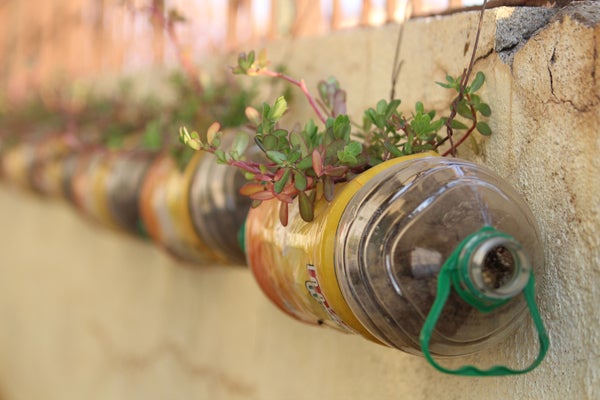
The joy of reuse is everywhere. From thrift-shop fashion to upcycled furniture on TikTok. With a little creativity, we’re finding ways to use the items we already have. Many companies are getting creative with reusable alternatives for everyday disposable products.
Amazing examples of upcycled products:
- upcycled gift tags for birthday and holiday gifts
- these canvas bags made from recycled military tents and tarps
- the Suga yoga mat made from upcycled wetsuits
- a retired Delta Airlines B 747-400 passenger seat office chair
What does ‘eco-friendly’ mean? Other terms for the product’s effect on people, animals, and the environment.
- Your carbon footprint refers to the amount of greenhouse gases your actions release into the atmosphere. You can calculate your carbon footprint online.
- Products labeled ‘cruelty-free’ don’t use animals to test their products. You’ll see this term used most with eco-friendly bath and beauty products. Vegan items don’t contain animal products, and they’re cruelty-free. Some vegans also avoid non-invasive animal products. These products include honey, beeswax, or silk.
- Fair-trade means that all companies involved in making the product pay their employees fairly and provide humane working conditions. Lots of major companies outsource production in exchange for cheap labor, like sweatshops or prison labor. The more of those products we buy, the more they need to produce.
- Organic is used to describe agricultural products (like produce, meat, or cotton) that have not been treated with fertilizers, pesticides, preservatives, or other chemical interventions. The standards for an organic product vary from country to country.
- A renewable resource is a natural resource that can be replenished at the same rate we consume it. The term is often used to talk about natural energy sources like wind and solar power.
- Sustainability is the practice of maintaining an ecological balance by actively replacing the resources we consume. Products that promote sustainability often help you make changes in your habits or lifestyle.
- ‘Zero waste’ is the idea that products can be created and used without creating any waste. Products like shampoo & conditioner bars, reusable straws, and reusable grocery bags are some common zero waste alternatives.
Looking for more sustainable products? Check out our list of eco-friendly gifts that keep on giving!
The Daily Dot may receive a payment in connection with purchases of products or services featured in this article. Read our Ethics Policy to learn more.

